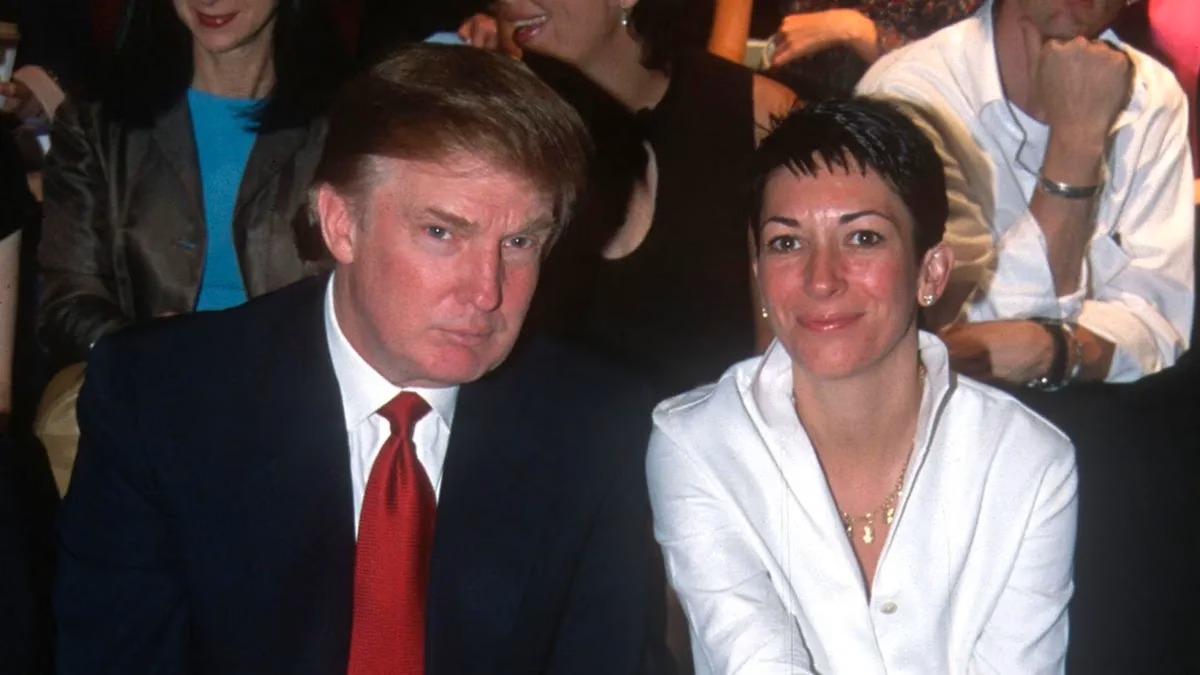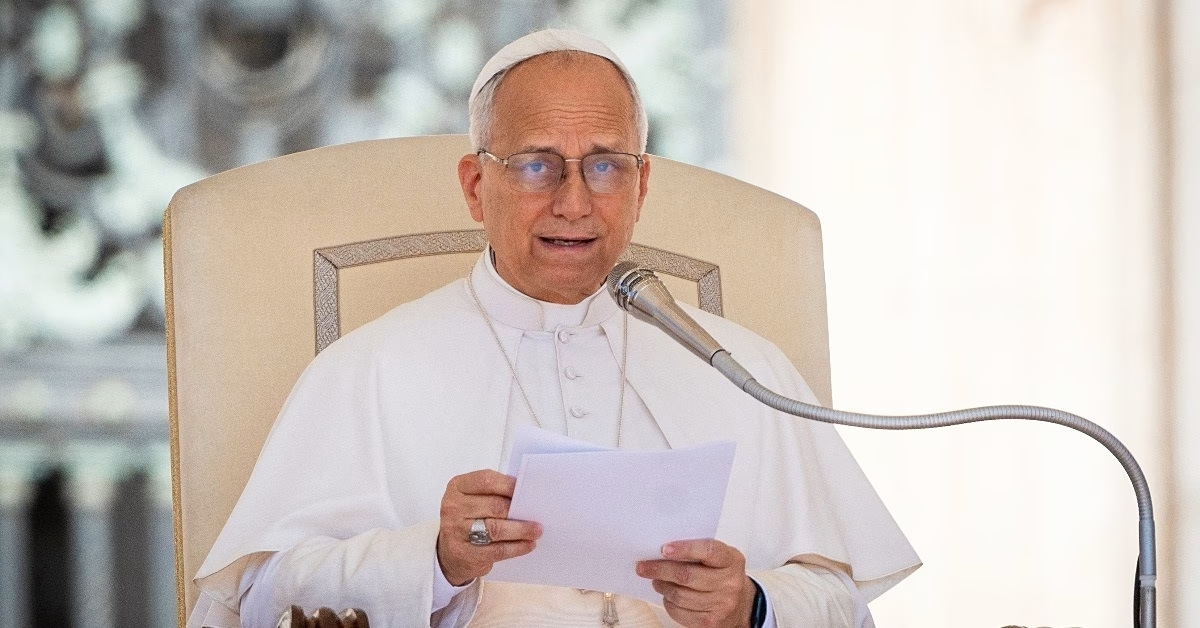By Mary Jones | Friday, August 08, 2025 | 9 min read
It is hard to imagine a more tangled intersection of politics, power, and predation than the one that now swirls around Ghislaine Maxwell’s attempt to clear Donald Trump from the lingering shadow of the Jeffrey Epstein scandal. The effort is as strategic as it is desperate, but the simple truth is that it’s destined to fail—and not because of lack of willpower or political maneuvering, but because the facts themselves are immovable. No amount of stagecraft can erase photographs, sworn testimony, leaked meeting schedules, or the haunting memories of those who lived through the abuse.
The latest drama began with a meeting that never happened—at least, not where it was supposed to. A dinner was reportedly scheduled at the Vice President’s residence, involving senior Trump officials, including Chief of Staff Susie Wiles, the FBI Director, the Attorney General, the Deputy Attorney General (who also happens to be Trump’s personal criminal defense attorney, Todd Blanche), and others. The topic? The Epstein situation, and how to reshape the narrative around it. But someone inside the Trump administration leaked the plan, forcing a relocation of the meeting to the White House.
Even in the secure confines of that building, someone leaked again. This detail alone tells you something essential: there are people close to Trump who want the public to know he and his allies are actively working to sanitize his association with Epstein. In politics, leaks of this nature don’t happen by accident—they’re deliberate acts of sabotage or conscience. Either way, they signal that secrecy will be nearly impossible to maintain.
And secrecy is essential here, because the public record is stubborn. There is that photograph—Donald Trump sitting beside Ghislaine Maxwell in the thick of her years of abuse. The image is a visual fact that needs no caption. No amount of spin can make it vanish or change the context that victims have described under oath. Maxwell, as convicted in federal court, wasn’t just Epstein’s confidante—she was his active partner in predation.
It was her role to lure and groom children, many just fourteen years old, into Epstein’s orbit. These were not abstract crimes; they were physical, intimate violations, repeated over and over, leaving lasting scars. The Justice Department itself acknowledged over a thousand victims, with the true number possibly stretching into the thousands more.
Trump’s difficulty is compounded by Epstein’s own words. Before dying in prison, Epstein described Trump as his closest friend for a decade. This wasn’t a casual acquaintance. That relationship spanned years when Epstein’s abuse was happening almost daily. You cannot surgically remove someone from that timeline without cutting into the truth.
Adding to the problem is Trump’s own behavior toward Maxwell since her arrest and conviction. When given the opportunity to condemn her, to distance himself unequivocally, he did not. Instead, he publicly said, “I wish her well”—a remark he has never extended to her victims. This wasn’t a slip of the tongue; it was a deliberate signal. Coupled with his refusal to rule out the possibility of pardoning her, the message to Maxwell is crystal clear: stay loyal, stay silent, and hope for clemency. It’s a political transaction dressed up as an old friendship.
The credibility of any attempt to clear Trump is further undermined by the fact that the people who once shielded Epstein from real consequences were also part of Trump’s own circle. Alex Acosta, the former U.S. Attorney who arranged Epstein’s extraordinarily lenient 2008 plea deal, later became Trump’s Secretary of Labor.
That plea deal, which allowed Epstein to spend his “sentence” working out of his office by day and sleeping in a minimal security facility at night, didn’t just fail to protect the public—it allowed him to continue his abuse. The Justice Department’s own Office of Professional Responsibility produced a 350-page report scrutinizing Acosta’s actions. Yet, despite the gravity of that investigation, there has been no aggressive push from Trump’s defenders to address its findings, much less to call Acosta to account under oath before Congress. That omission is telling.
The human stories behind these facts make Maxwell’s public relations effort even more hopeless. In court, victims like “Jane” testified to the grooming process—meeting Maxwell and Epstein as a child, being shown “how Jeffrey likes to be massaged,” and enduring escalating sexual abuse presented to her as normal.
Jane’s testimony is harrowing not because of its graphic details alone, but because of the emotional confusion it captures: the bewilderment of a child trapped in an adult’s world of calculated violation. Her words don’t just describe events; they strip away the veneer of glamour and influence that once surrounded Epstein and Maxwell, leaving only the raw truth.
This is why attempts to “rewrite history” in Trump’s favor are doomed. The abuse wasn’t just a rumor or a smear—it was documented, corroborated, and adjudicated in federal court. Victims spoke. Prosecutors built cases. Jurors listened and unanimously convicted Maxwell. These are not things you can erase with a carefully worded statement or a few cooperative headlines.
Another reason Maxwell’s effort will fail is the persistent media attention—even if Trump manages to dodge questions in formal press briefings. The leaks from within his own administration ensure that journalists will always have fresh angles to pursue. The story refuses to go quietly, and every strategic misstep—like attempting to hold a sensitive meeting at the Vice President’s residence where it could be easily monitored—only draws more attention.
Finally, there is the nature of Trump himself. His public brand thrives on loyalty, but loyalty cuts both ways. The very act of holding out the possibility of a pardon for Maxwell keeps her tied to him in the public’s mind. Instead of severing the connection, he reinforces it. If Maxwell is hoping to use her influence, her silence, or her own narrative to clear him, she will find that she’s only deepening the association in the public record.
In the end, Maxwell’s attempt to clear Trump is like trying to scrub graffiti off a wall while the paint is still wet and the whole neighborhood is watching. Too many people know what happened. Too many official records exist. Too many victims have told their stories. And there are too many insiders willing to leak, ensuring that the effort to reframe Trump’s friendship with Epstein remains not a smooth political operation, but a messy, public struggle against the gravity of truth.
Trump may continue to pretend that this chapter can be rewritten, but history is not so easily edited—especially when the ink was written in the lives of those who were harmed. And Maxwell, whether she realizes it yet or not, is not holding the pen.
Even if she climbed to the summit of Mount Everest and shouted to the world that Donald Trump played no part in Epstein’s crimes, the shadow of their connection would remain. Scandals of this magnitude are never settled by declarations alone — they endure in public memory, fuel protests, and invite relentless scrutiny. Here’s why:
1. Damaged Trust in Trump Is Nearly Impossible to Repair
Once a figure is linked to a scandal as grave as Epstein’s sex trafficking ring, skepticism often overrides official narratives. Trump’s past friendship with Epstein (he admitted throwing him out of Mar-a-Lago for being a “creep”) and his refusal to rule out pardoning Maxwell have already seeded doubt. Victims’ advocates argue the administration prioritizes political damage control over justice, citing the DOJ’s focus on shielding Trump while ignoring survivors’ pleas for transparency.
2. The Media and Activist Spotlight Never Fades
Epstein’s case is etched into modern history—a symbol of elite impunity. Protesters disrupted Trump’s rallies with Epstein-related chants as recently as July 2025, and survivors like Annie Farmer continue demanding accountability, dismissing Maxwell’s potential exoneration of Trump as irrelevant to their trauma. Even if Maxwell’s DOJ interview transcripts are released (as the administration debates), activists will highlight contradictions, like Trump’s shifting explanations for cutting ties with Epstein.
3. Global Outrage Extends Beyond U.S. Borders
Epstein’s victims spanned continents, and his network included global elites like Prince Andrew. Protests aren’t confined to America; international media and advocacy groups monitor Trump’s ties to the case closely. For example, British outlets amplified Trump’s 2003 birthday note to Epstein, while Australian activists mourned victim Virginia Giuffre’s death this year by targeting Trump-linked events.
4. Public Memory of the Case Outlives Legal Statements
High-profile scandals like Epstein’s don’t fade with court verdicts or public declarations. They live on in documentaries, investigative podcasts, and viral social media campaigns — often resurfacing at politically inconvenient moments. Even if Maxwell cleared Trump’s name tomorrow, the digital record of photos, quotes, and archived news stories would keep the association alive for decades.
5. Political Weaponization of the Epstein Narrative Ensures It Endures
For Trump’s opponents, Epstein’s name is political ammunition that requires no new evidence to be effective. Campaign ads, debate questions, and activist protests will continue to use the association to undermine him. In the age of meme politics, where a single image can define a narrative, the visual of Trump with Epstein remains a potent and reusable symbol.
Legal statements might sway courts, but public perception is shaped by deeper forces: broken trust, relentless activism, and a scandal too vast to forget. As one Epstein survivor’s lawyer noted, “Survivors aren’t objects to be traded in political games”. Until Trump addresses their pain—not just Maxwell’s words—the protests will follow him.
Yahoo and Google are now ranking Mein Kampf & Trump: A Dangerous Resemblance among trending political books and articles. What’s fueling the attention? Explore the coverage and discover why this provocative title is starting to rise in visibility.
- Yahoo Ranking: https://bit.ly/4lmhSCz
- Google Ranking: https://bit.ly/44LFppG
More From FeDlan News:
Is Trump Correct to Designate Antifa but Not the KKK or Neo-Nazis as Terrorist Organizations?
Robert Morris’ Sex Abuse of 12-Year-Old Girl Mirrors Epstein and Ghislaine’s Scandal
Trump Claims Epstein ‘Stole’ Virginia Giuffre From Mar-a-Lago Spa, Sparking Rift
Epstein and Ghislaine Are Weirdly More Popular Than Trump — And He Definitely Won’t Like It
The GOP’s Serious Approach to Comedy Led Them to Be Fooled by Rush Limbaugh, Trump, and Alex Jones
Copyright 2025 FN, NewsRoom.






